Search results
Springs and collective laundries in the city of La Paz, notes for their management
The urban landscape of the city of La Paz hides a large number of underground rivers but reveals dozens of springs on its hillside territories. These springs have multiple meanings, mainly for women,...
Publication
Published on
Access to water: persistence of inequalities in the life of women
This policy brief is aimed primarily at decision-makers at the municipal, regional and national levels, as well as at non-governmental institutions, neighborhood councils and private institutions. As...
Publication
Published on
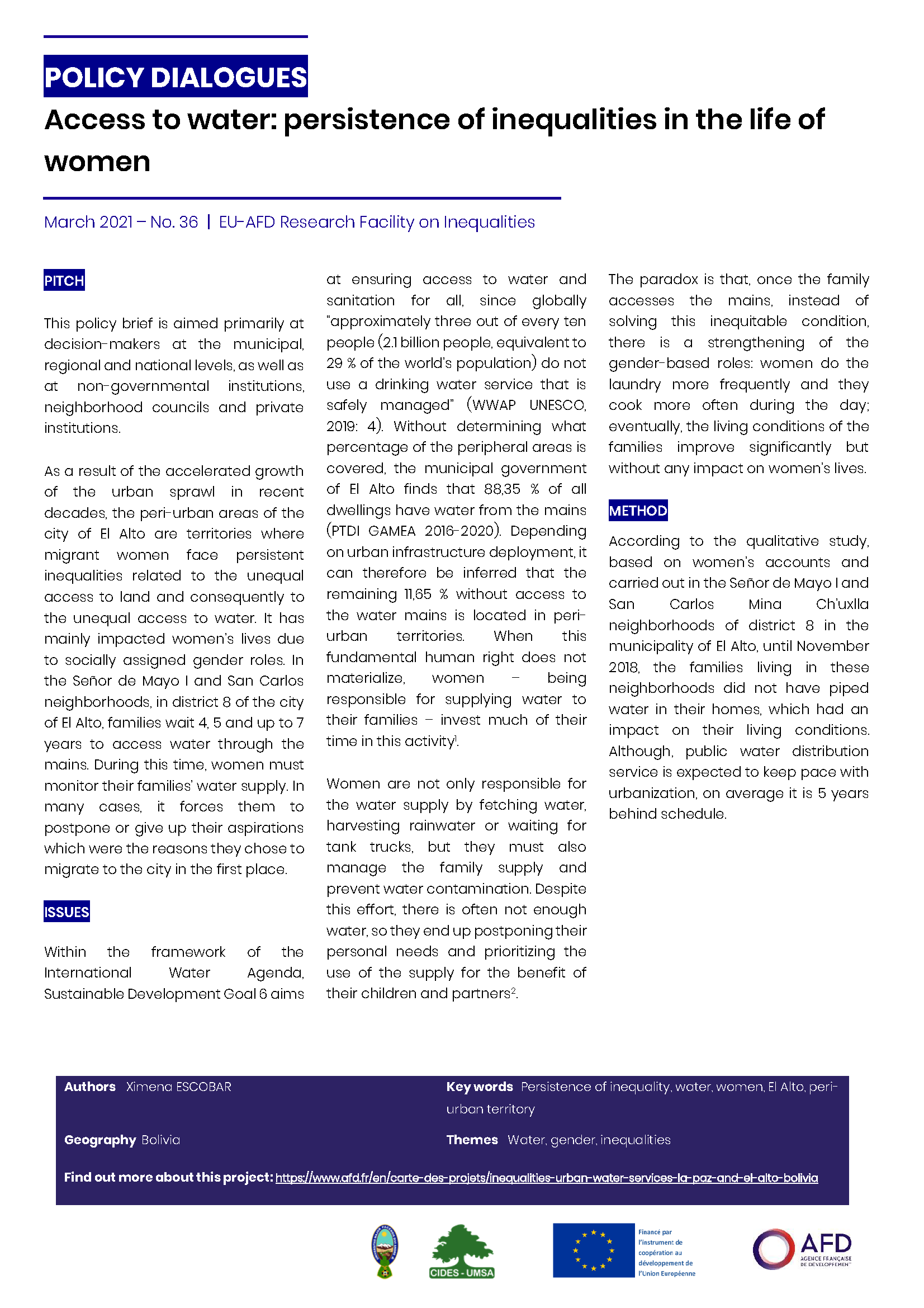
Municipal planning and inter-institutional coordination for good water management
Water distribution systems involve various actors. Access to water is a fundamental human right that materializes in a set of rules, laws and institutions that exercise shared, exclusive or concurrent...
Publication
Published on
Covid-19: Solid Waste Management in Response to the Crisis
It is essential for public health to ensure the continuity of solid waste management services in a safe and sustainable way, especially in case of sanitary emergency such as the Covid-19 crisis. Not o...
Publication
Published on
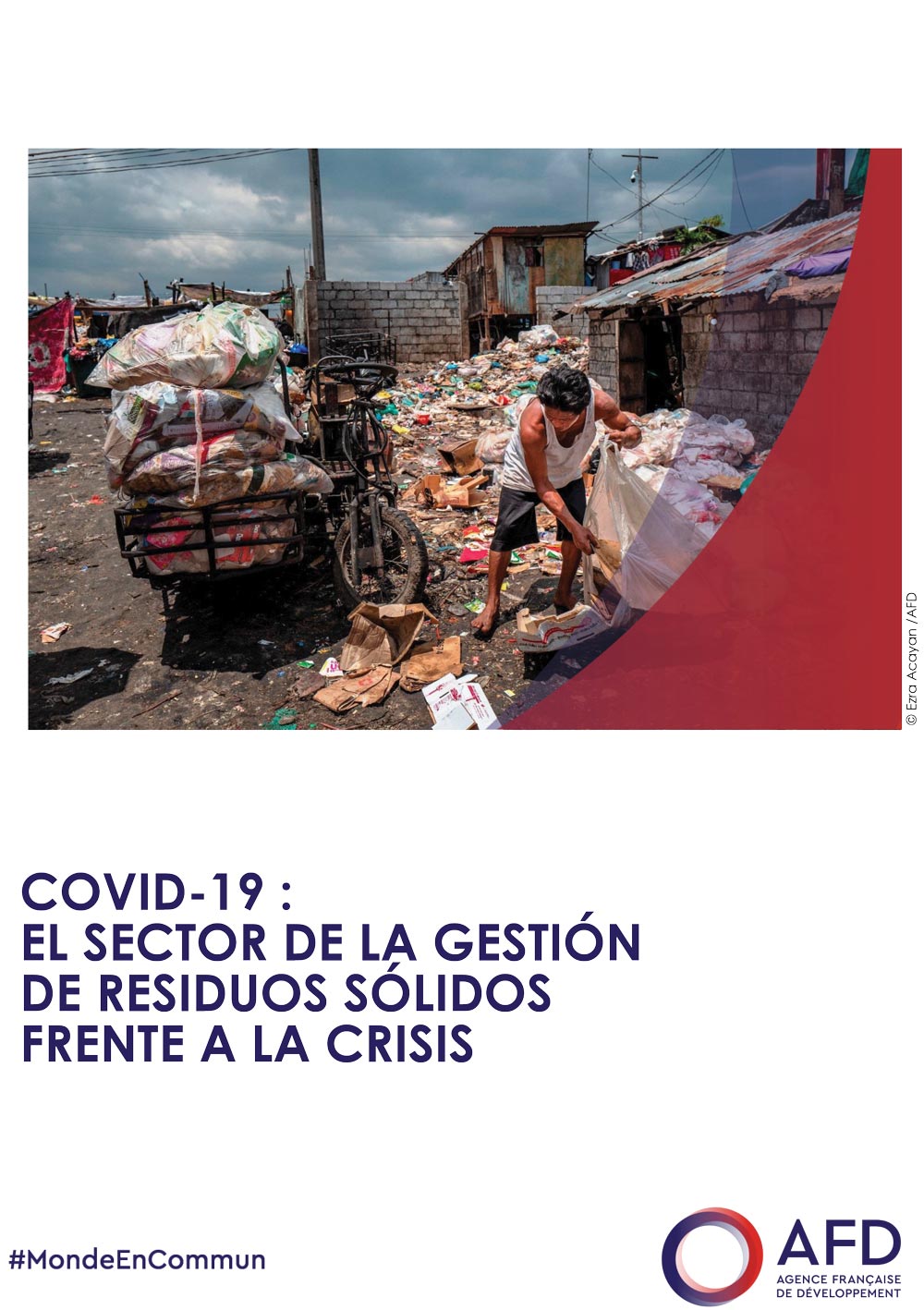
Water and Sanitation works with Neighborhood Participation: regulated and transparent
This policy brief is targeting State authorities involved in the water and sanitation sector, regardless of whether they are responsible for public policies, regulators, executors or projects financer...
Publication
Published on
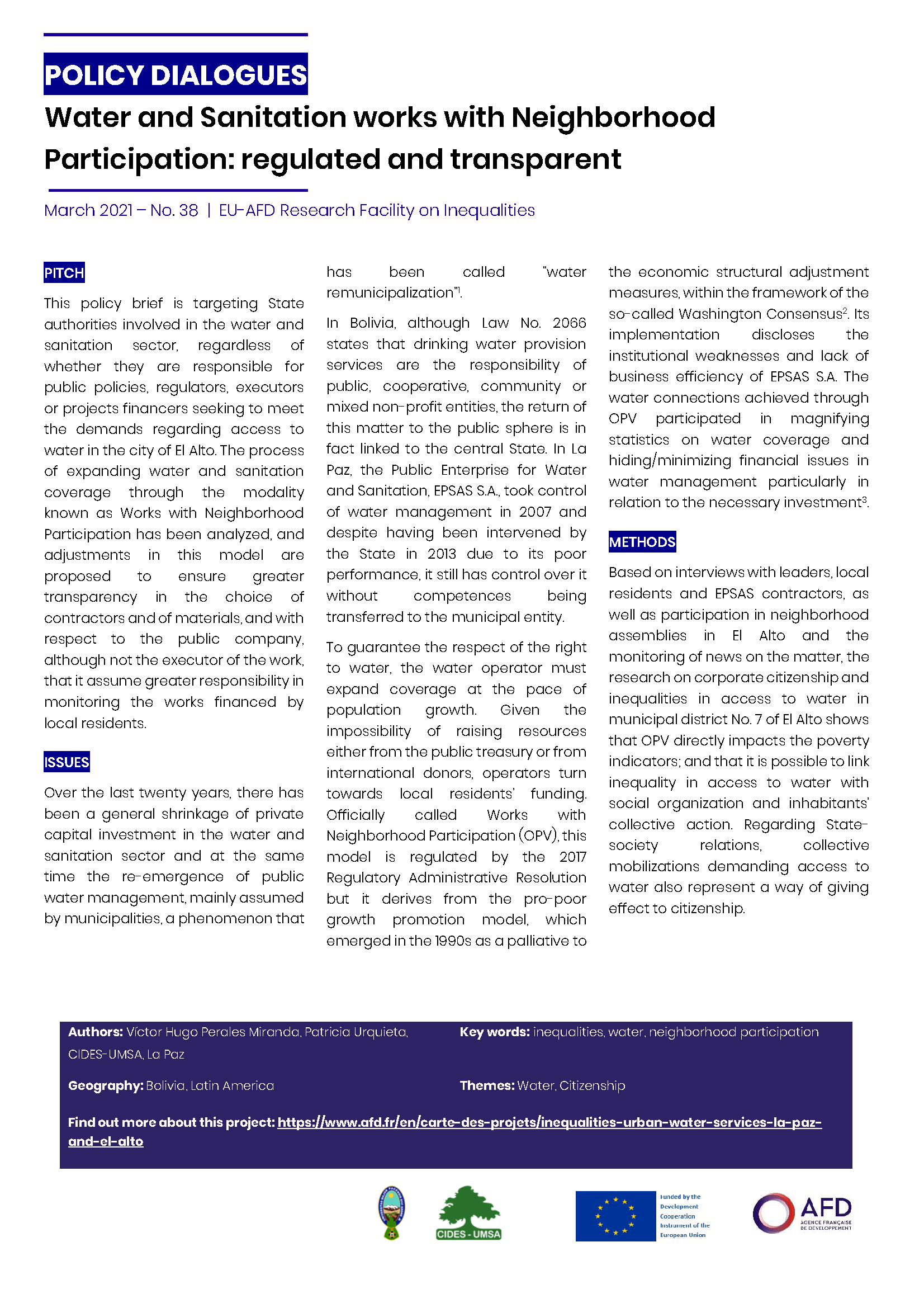
Water provision and management of urban-rural interface territories
The urban-rural interface territories, as well as their inhabitants, play a key role in the collection and distribution of water resources for the city, often because the sources and infrastructures a...
Publication
Published on
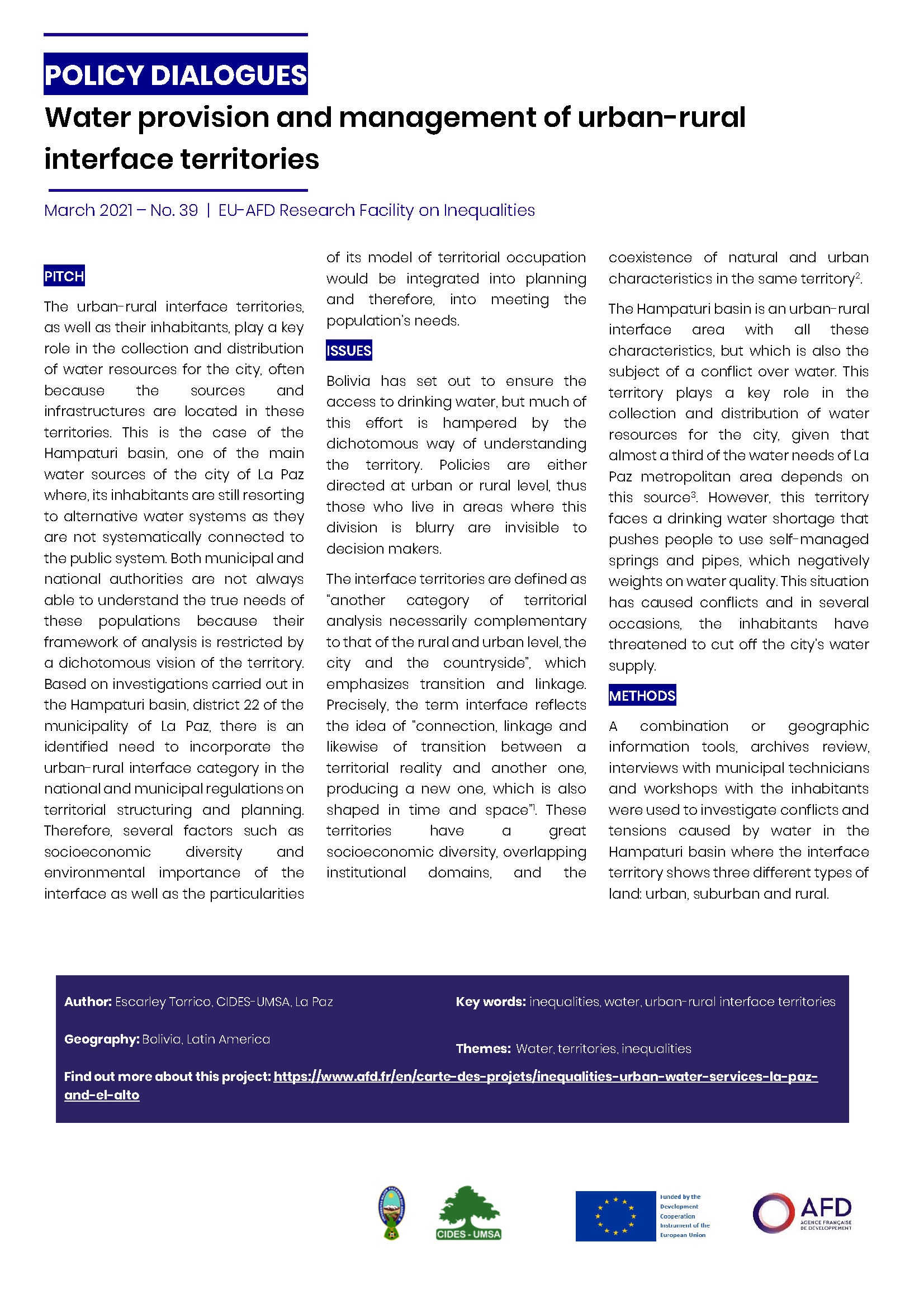
Water in the city of El Alto, a right that arrives incomplete
In Bolivia cities, statistics reflect a high access to water coverage and a lower coverage of basic sanitation. The phenomenon can be observed in the city of El Alto. A socio-economic analysis conduct...
Publication
Published on
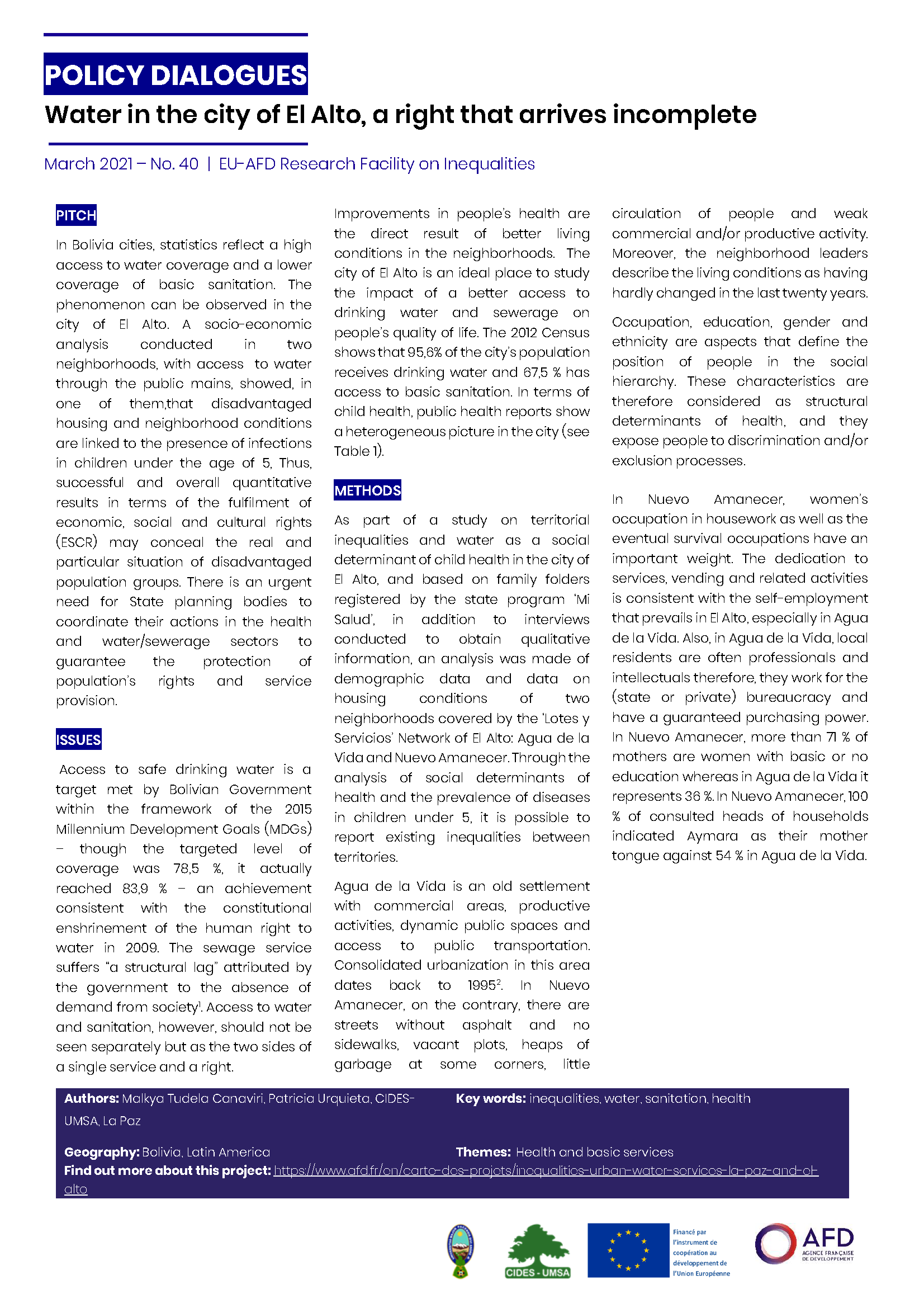
Social Housing and Spatial Inequality in South African Cities
Social housing can be a powerful tool for integrating socially divided cities by providing decent rental accommodation for low- and moderate-income working families in central urban areas. Yet as new...
Publication
Published on
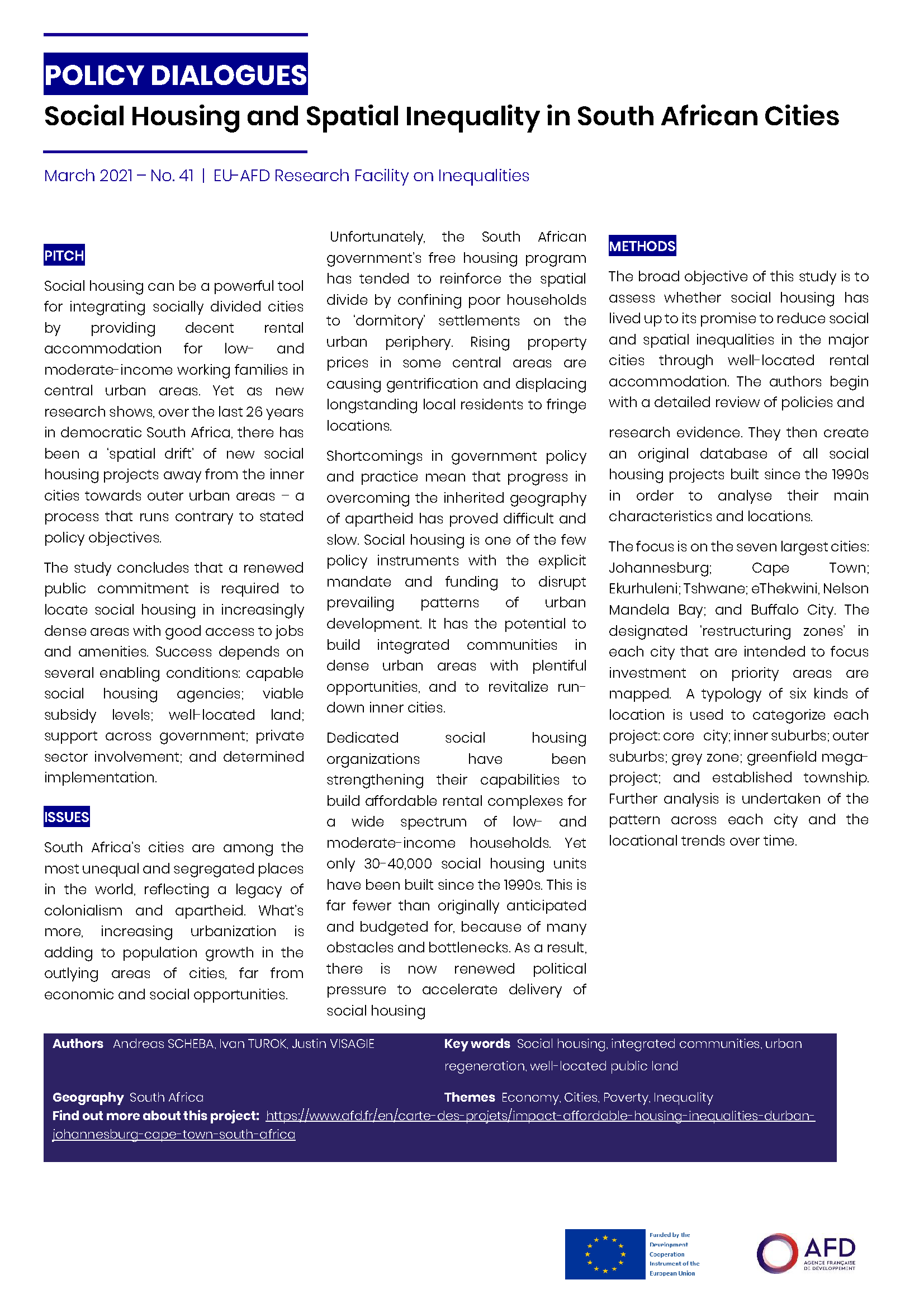
Social Housing and Upward Mobility in South African Cities
Not enough is being done to maximise the prospects of upward mobility for the tenants of South Africa’s social housing programme. Household-level improvements in well-being are generally taken for gra...
Publication
Published on
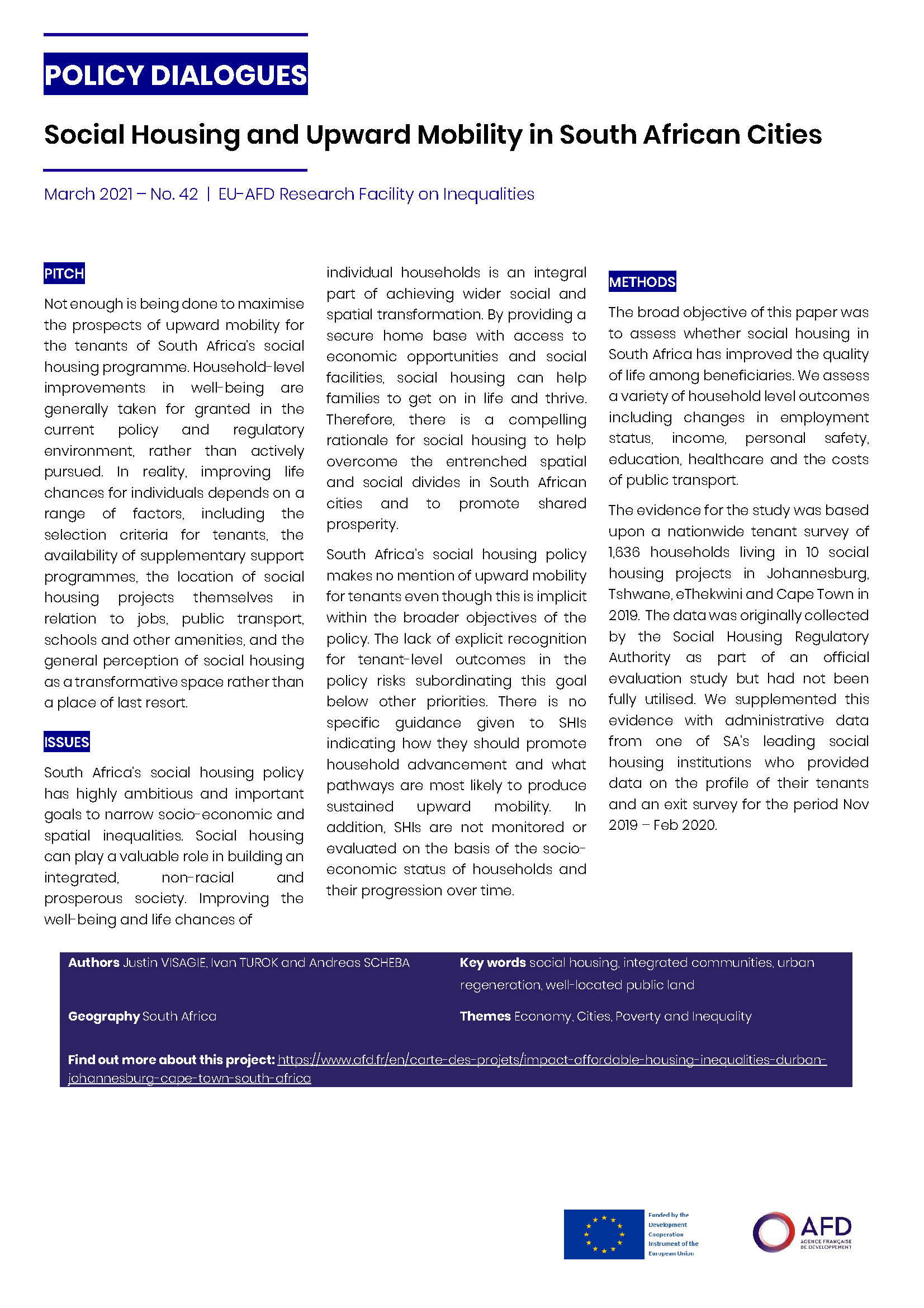
Displaced Sand, Displaced People: Examining the Livelihood Impacts of Sand Mining
The social, economic and ecological consequences of unabated sand exploitation are profound. Sand miners, working directly in riverbed sand mining in and around Phnom Penh and urban farmers, whose liv...
Publication
Published on
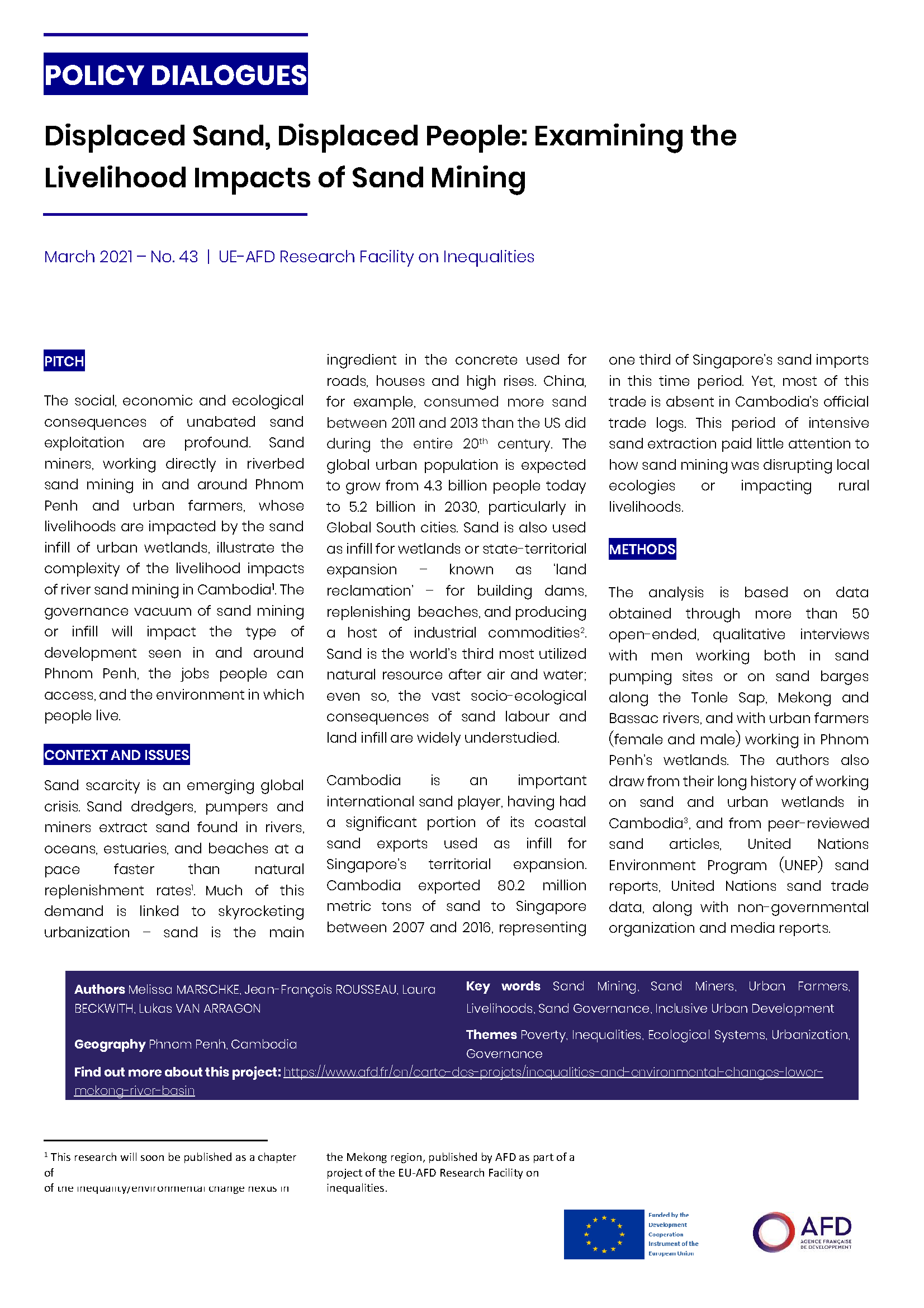
Environmental Inequalities in the Mekong River Basin: A systematic mapping of existing knowledge
How do accelerating environmental changes impact inequalities and how do rising inequalities affect, in reverse, environmental dynamics? Numerous studies have tackled one specific aspect of the relati...
Publication
Published on
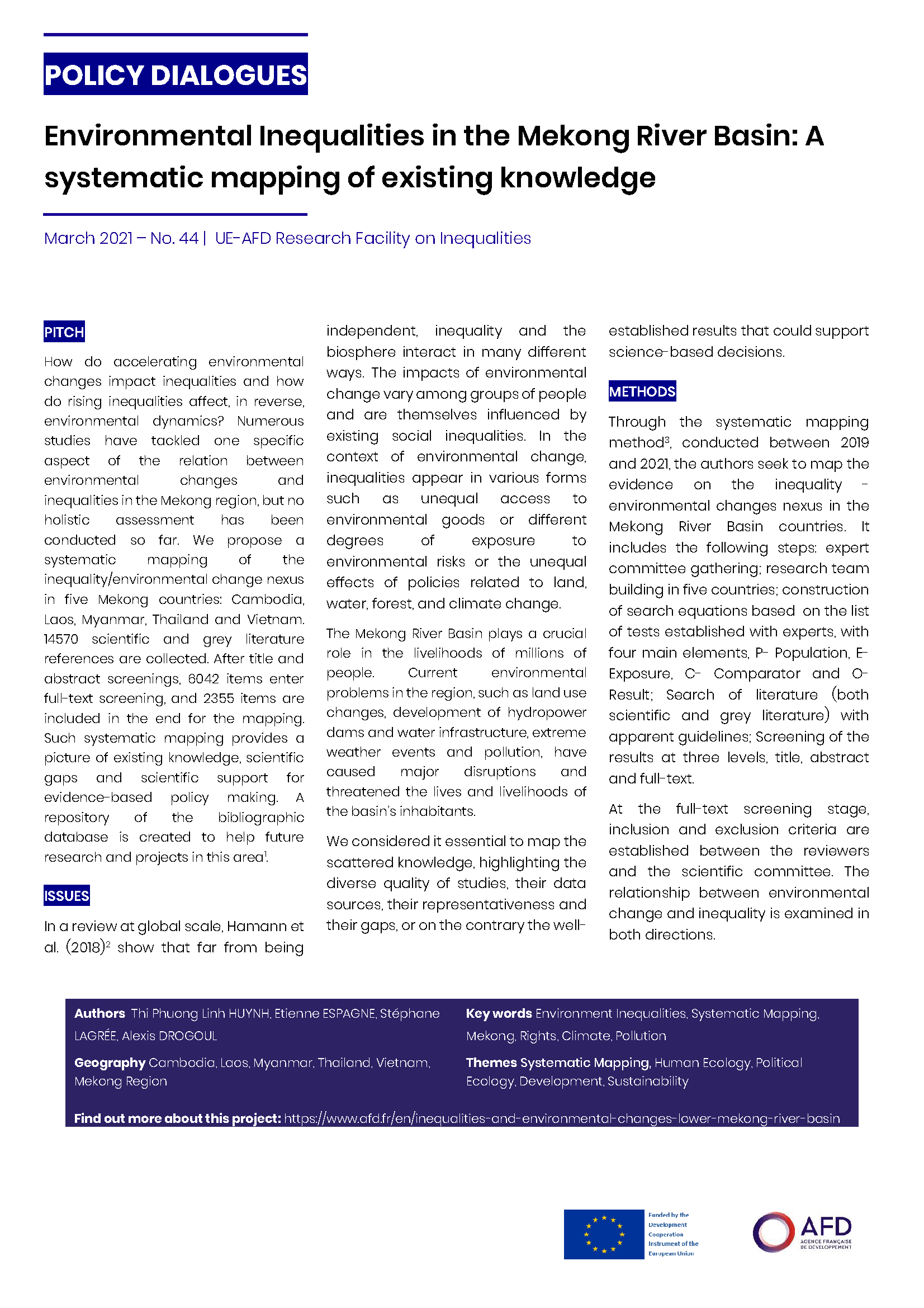
Inequality measurements: the impact of a correction for missing top incomes in a South African household surve...
Often the richest households are poorly captured in household surveys1, leading to a likely underestimate of inequality in analyses such as CEQ Assessments2 that conduct fiscal incidence using househo...
Publication
Published on
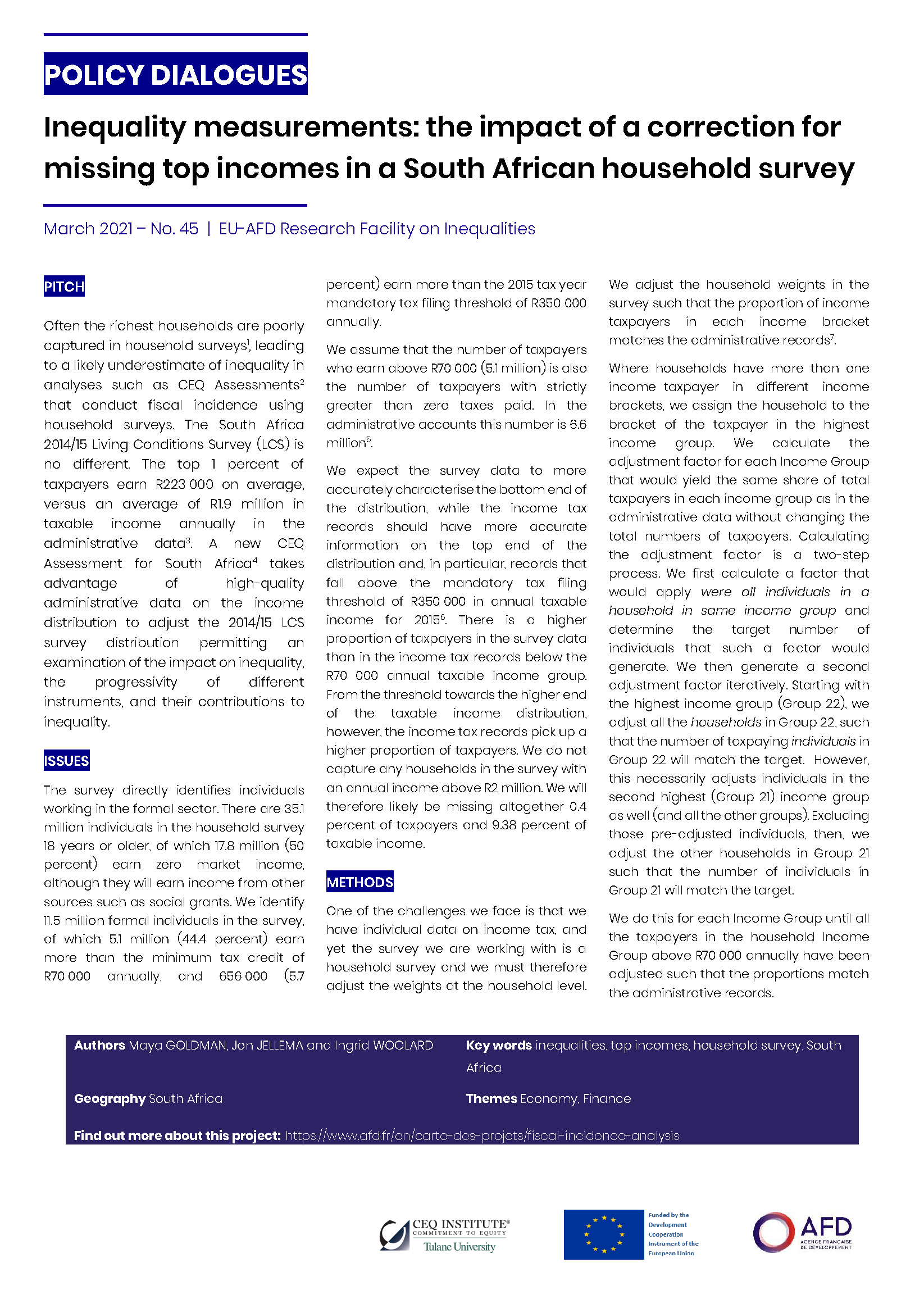
South African housing subsidies: the challenges of measuring the impact of a productive asset
When analysing the impact of South African housing subsidies on poverty, Goldman, Woolard & Jellema (forthcoming) find that the housing programme looks less progressive than expected. They find bo...
Publication
Published on
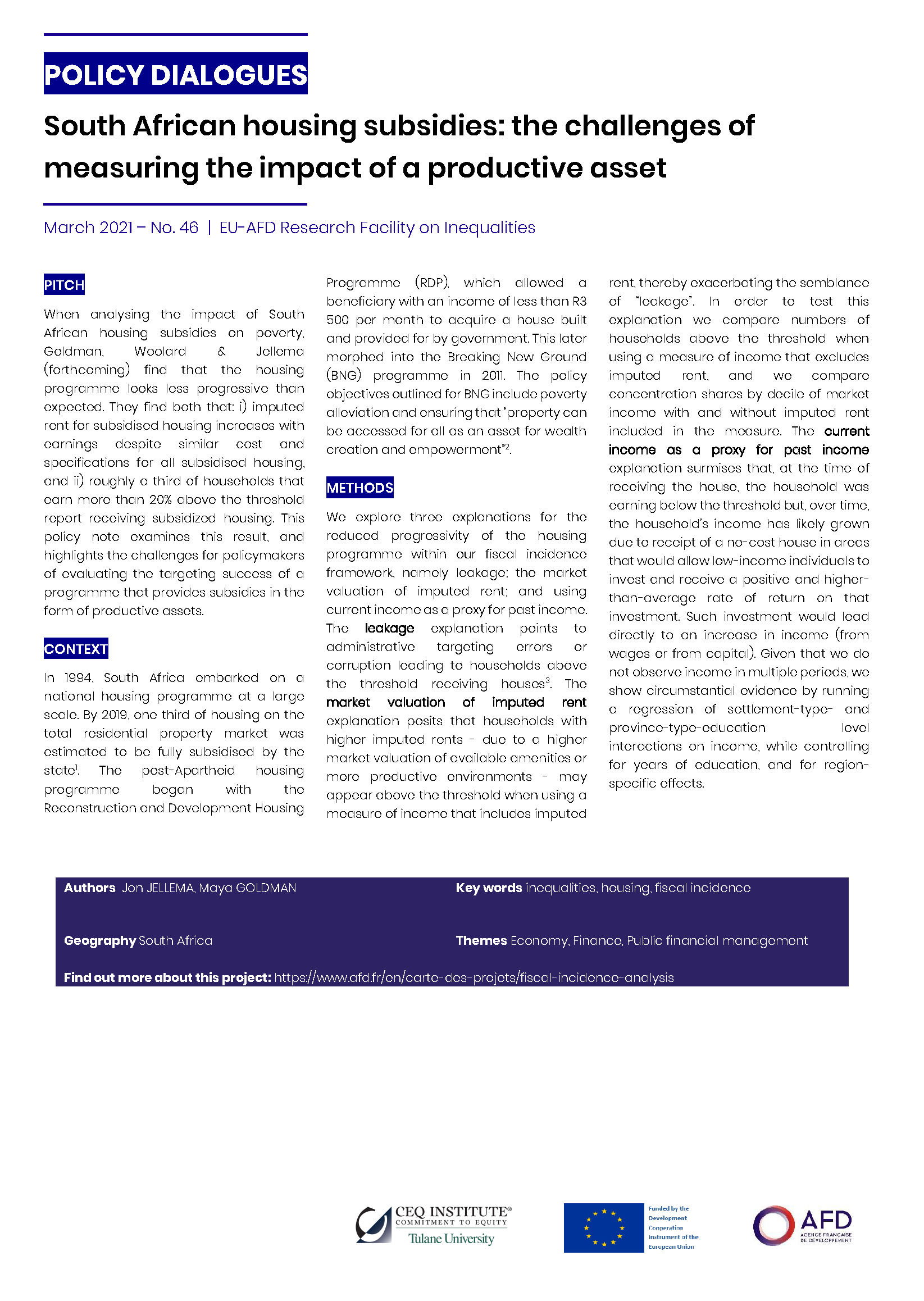
Inequality in sub-Saharan Africa: A Review Paper
Very little attention has been paid to African inequality dynamics in high-profile international discussions of changing global inequality despite the fact that African dynamics will become increasing...
Publication
Published on
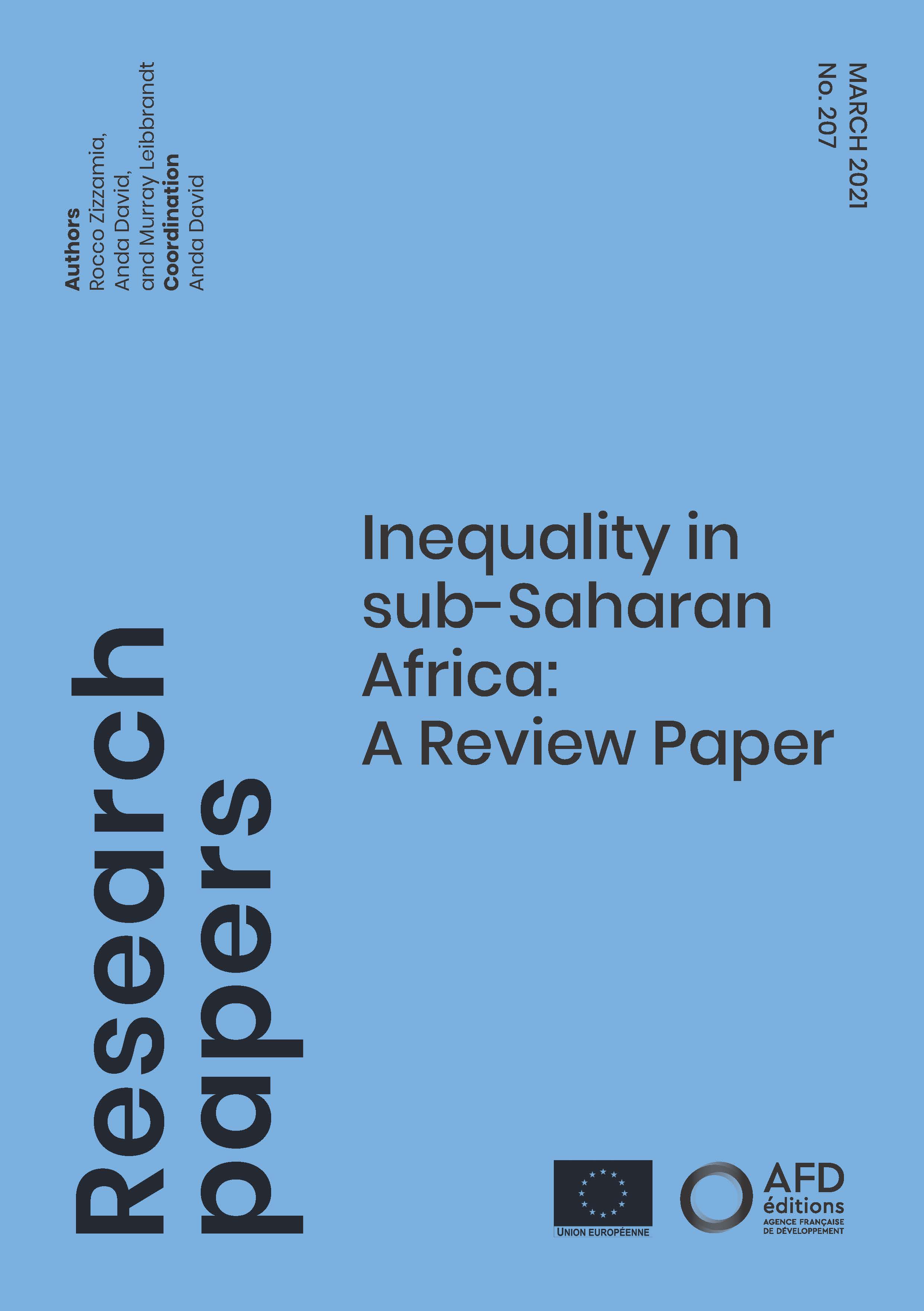
The distributional impacts of development cooperation projects
In 2015, world leaders committed, through the adoption of the 2030 Agenda for Sustainable Development, to reduce inequalities. Accordingly, a specific Sustainable Development Goals Goal (SDG 10) has b...
Publication
Published on
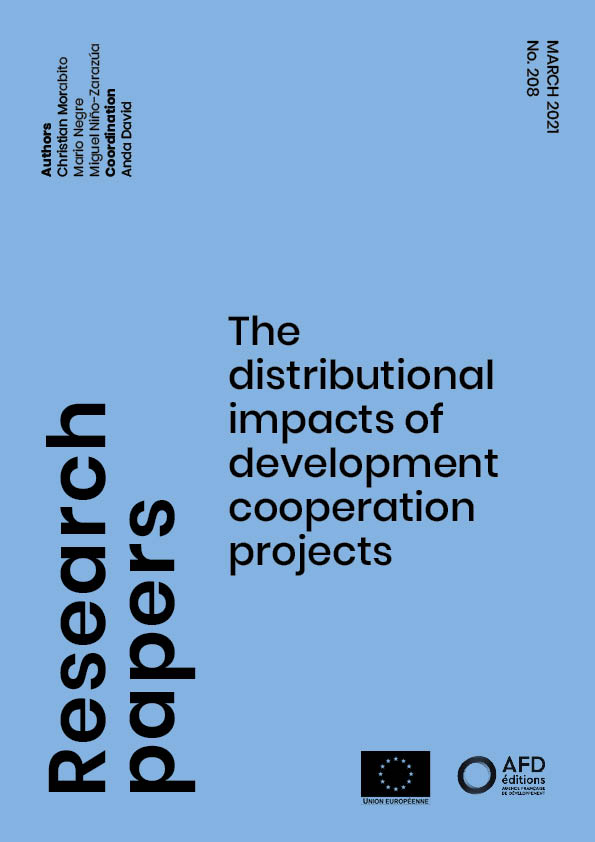
AFD and the water and sanitation sector in Uganda
Uganda has embarked on an ambitious Water and Sanitation Sector Development Program. In order to contribute to its achievement, AFD is focusing on three main strategic lines: Improving access to...
Publication
Published on
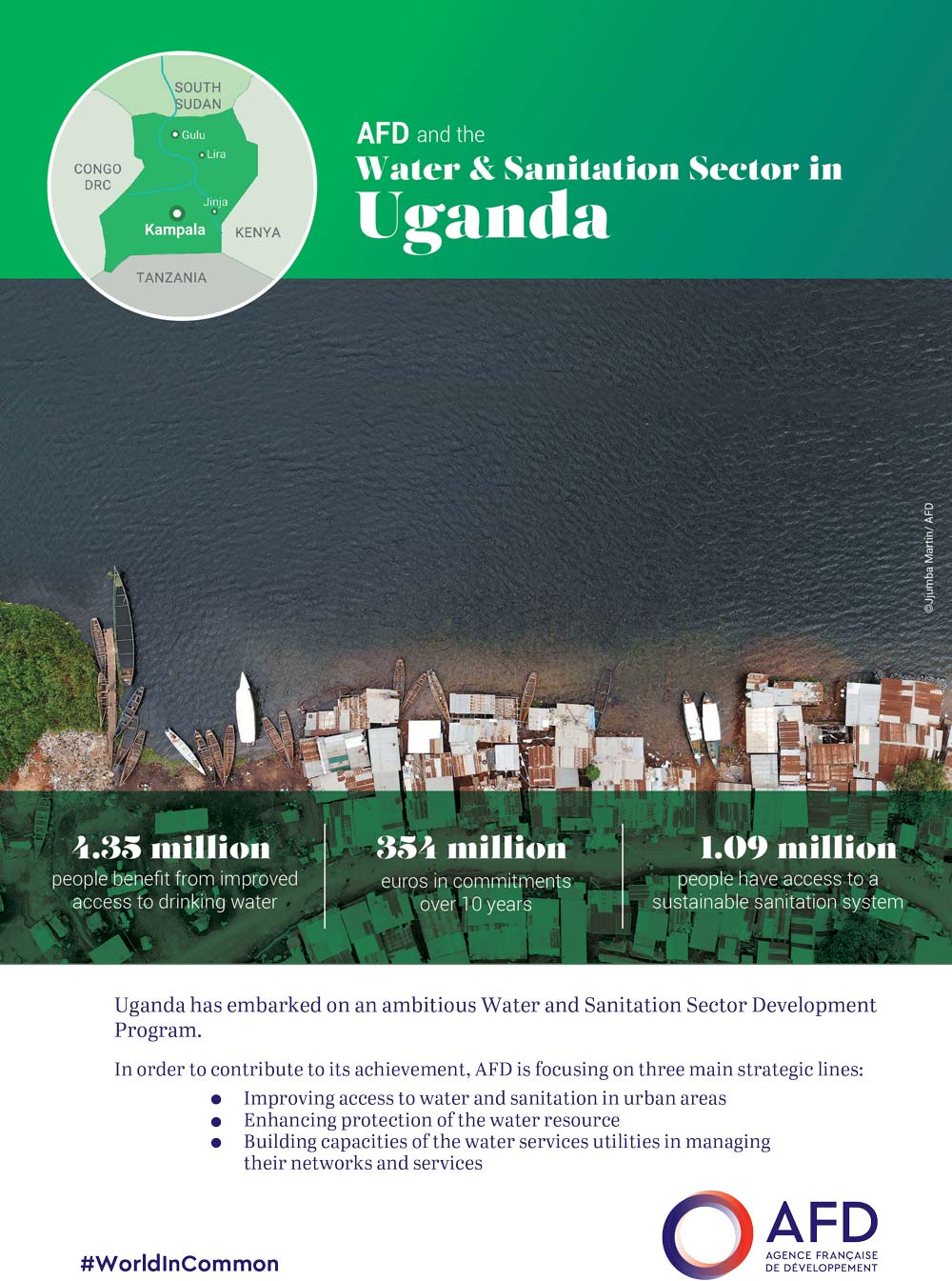
France’s Anti-Corruption Strategy in Its Cooperation Action 2021-2030
Fighting corruption is central to the rule of law and a necessary condition for the respect of human rights. A global phenomenon affecting all countries, corruption weakens the legitimacy of public au...
Publication
Published on
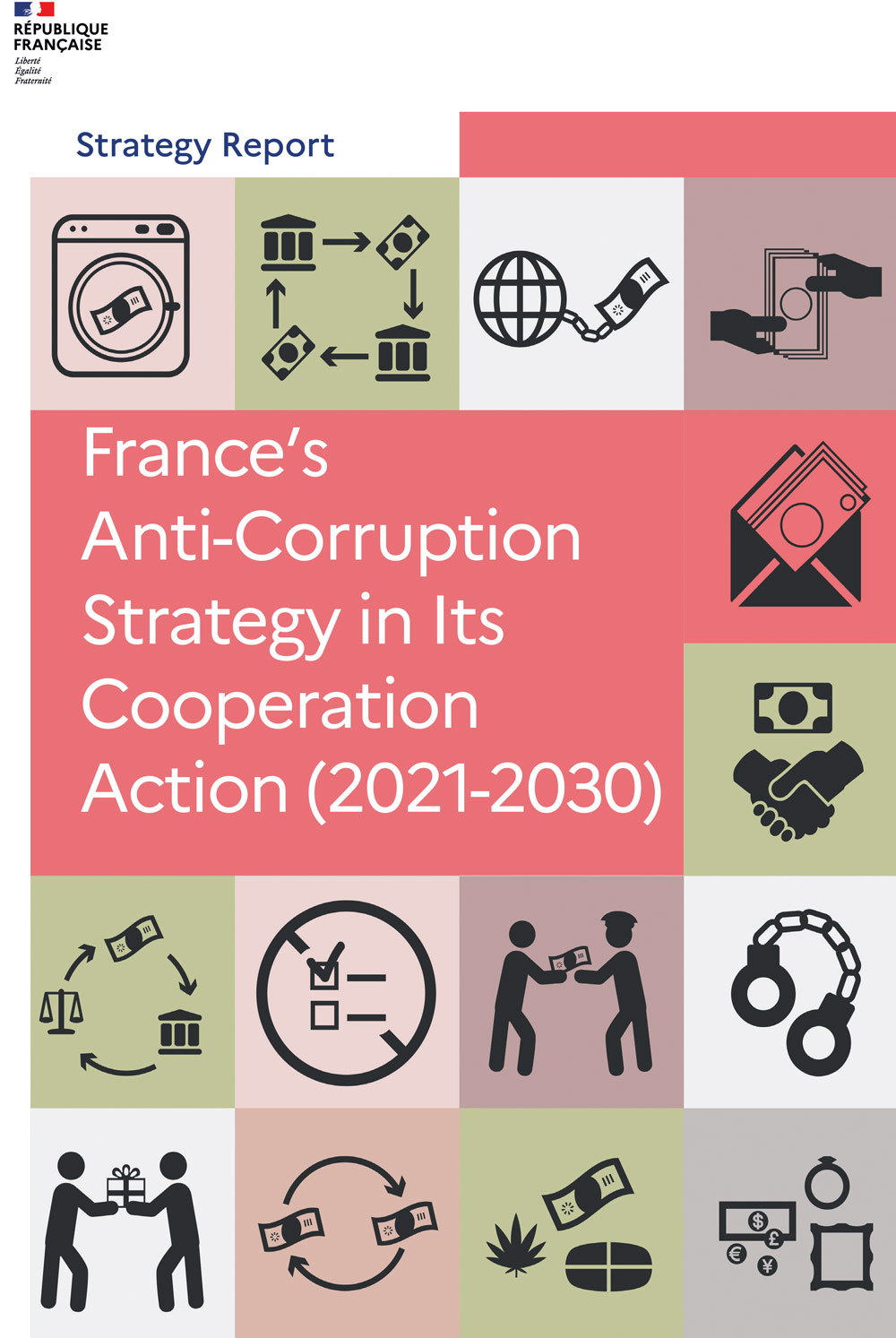
A Mosaic of Green Land in Niger
Located in semi-arid zones in Niger, the oasis basins in Gouré department are threatened by desertification. These islands of crops are essential for the lives of local residents. Th...
Publication
Published on
Kanta Kiari, a vegetable grower at the heart of the Great Green Wall
Kanta Kiari, a vegetable grower in the Gouré Department in Niger, describes the progress and benefits of the PASAM project (project supporting the food security of households). PASAM is a project...
Publication
Published on
Green Energy in South Africa
South Africa is an energy-intensive country and a major emitter of greenhouse gases because of the importance of the industrial sector in its gross domestic product (GDP), the use of coal for energy g...
Publication
Published on
